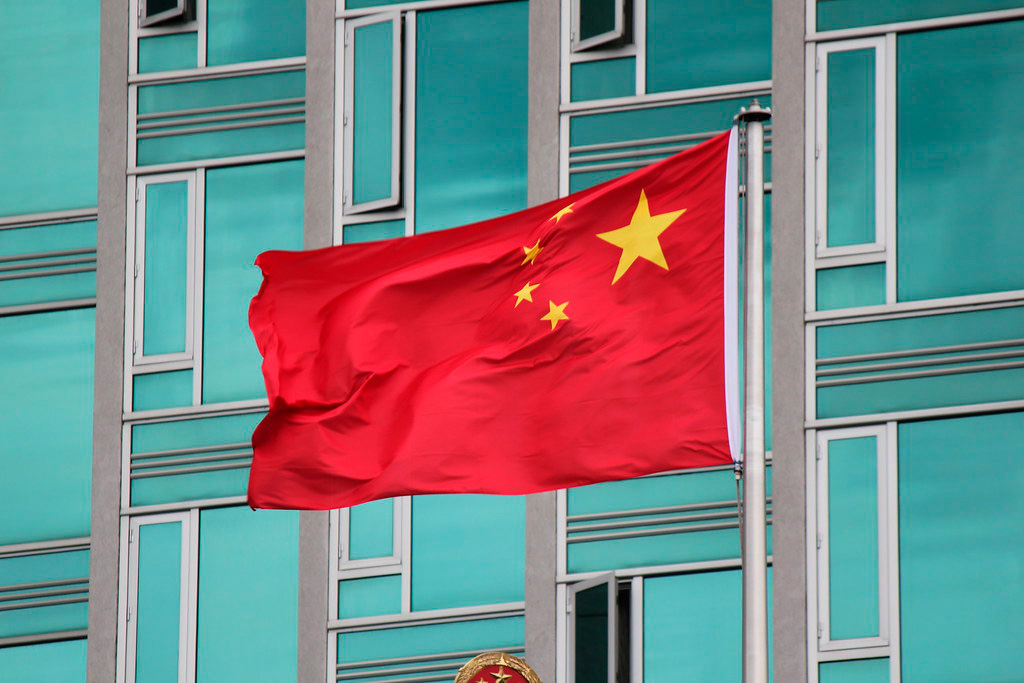Amid accusations of a debt-trap foreign policy, China continues its courtship of the African continent through financial aid, infrastructure projects, and economic cooperation. The recent Forum on China-Africa Cooperation (FOCAC) summit was the latest move by China to woo Africa. Chinese President Xi Jinping pledged over $50 billion in funding and promised to create at least one million jobs across the continent.
Opportunist Beijing has long sought to secure a reliable supply of critical minerals from Africa through its Belt and Road Initiative (BRI) and other lucrative offers. It has left no opportunity to project itself to African leaders as their sole benefactor. State-backed Chinese companies have ownership positions in mining companies across five continents. In the Democratic Republic of Congo (DRC)—which supplies 70 percent of the world’s cobalt—Chinese entities own or have stakes in nearly all the country’s producing mines.
Chinese mining and battery companies have invested $4.5 billion in lithium mines in the past two years and are behind much of Africa’s lithium projects in countries like Namibia, Zimbabwe, and Mali. It is estimated that China could secure one-third of the world’s lithium mining capacity by 2025, according to the U.S. Institute of Peace.
Since 2009, when China overtook the U.S. as Africa’s largest trading partner, it has cultivated strong ties across the continent, making itself indispensable in infrastructure development, mining, energy, and manufacturing. However, the nature of this partnership has drawn increasing scrutiny, as many African countries have found themselves heavily indebted to China, struggling to repay large-scale loans tied to ambitious projects. Beijing’s financial aid often comes with conditions—high-interest rates, contracts mandating the use of Chinese companies and materials, and expectations of political alignment. Critics, both within and outside Africa, argue that China’s engagement is a form of “debt-trap diplomacy,” where developing nations are left economically vulnerable and politically beholden to Beijing.
Zambia, one of the first countries to default on its Chinese loans in 2020, stands as a cautionary tale. The country’s inability to meet its debt obligations resulted in renegotiation talks that put Zambia’s economic sovereignty at risk. Kenya, too, has struggled with repayments on its Chinese-backed infrastructure projects, including the Mombasa-Nairobi Standard Gauge Railway, which has been riddled with financial inefficiencies. Djibouti now owes China more than 70% of its GDP, raising fears that strategic assets, such as ports, could fall under Beijing’s control if it defaults.
Despite this criticism, China remains relentless in its efforts to woo African countries. During his speech at the FOCAC summit, Chinese President Xi targeted the U.S., accusing the West of engaging with Africa purely out of self-interest and electoral calculations. He insinuated that the U.S. is only becoming active in Africa now, as American leaders face pressure from upcoming elections. Meanwhile, China presents itself as Africa’s consistent and genuine partner, committed to the continent’s long-term development. China’s irritation with the U.S.’s growing involvement in Africa stems from a perception that Washington is attempting to counter its influence in the region. While the U.S. has increased diplomatic and economic engagement in Africa—such as launching the Prosper Africa project and announcing infrastructure investments like the Lobito Corridor—these efforts have been described by China as reactive rather than strategic. The timing of the U.S.’s renewed interest in Africa, coinciding with the 2024 presidential election, has further fueled China’s accusations of opportunism.
During the FOCAC summit, Xi Jinping pointed to these actions as evidence that the U.S. is driven by short-term political calculations rather than a genuine commitment to Africa’s development. By positioning itself as Africa’s enduring partner, China seeks to deepen its influence in the face of what it perceives as an inconsistent U.S. strategy. Xi’s promise to create one million jobs across Africa aligns with this narrative, emphasizing Beijing’s long-term investment in the continent’s growth.
However, the growing debt crisis among African nations has complicated China’s ambitions. As African leaders themselves become increasingly wary of becoming overly dependent on Chinese loans, there is a growing recognition that diversification of investment sources is crucial to avoiding economic pitfalls. Several African countries are now seeking to strengthen ties with other global players, including the U.S. and Europe, to create a more balanced economic environment.
As more African countries struggle to repay loans, Beijing has been forced to adjust its strategy, focusing on smaller-scale projects that are less likely to contribute to unsustainable debt levels. As part of its damage-control efforts, President Xi emphasized the importance of “small and beautiful” projects, which aim to meet immediate community needs.
The U.S., for its part, has signaled a renewed commitment to Africa, with projects like the Lobito Corridor, which aims to connect Angola’s coast to the Democratic Republic of Congo, serving as one example.
In light of current developments, it is clear that Africa will remain a key region of influence for China. The continent’s vast resources, young population, and growing economies make it an attractive target for both China and global powers. While China has established itself as Africa’s primary partner in recent years, its dominance may be tested as more countries confront the reality of their growing debts and explore alternative investment sources.
For now, China’s courtship of Africa continues, with promises of jobs, infrastructure, and economic cooperation. But as African nations face the twin challenges of debt and dependency, the long-term viability of their partnerships with Beijing is increasingly under scrutiny.

